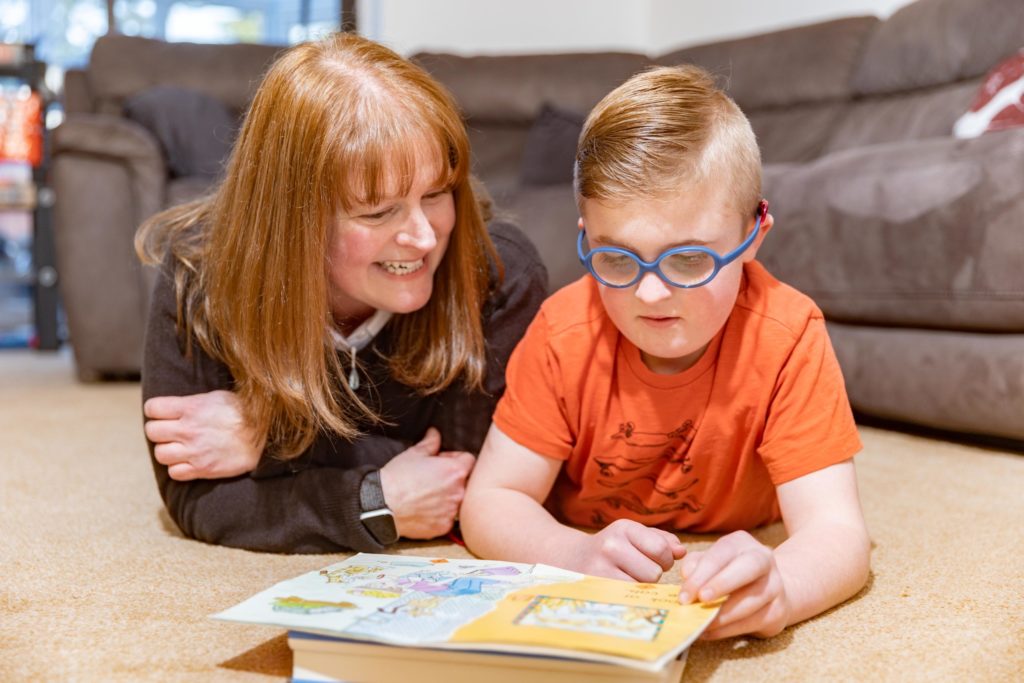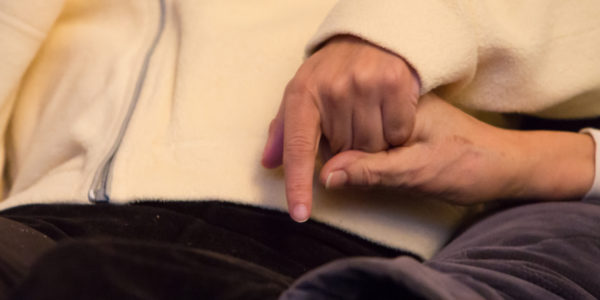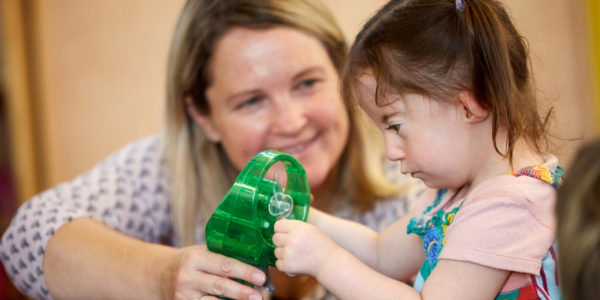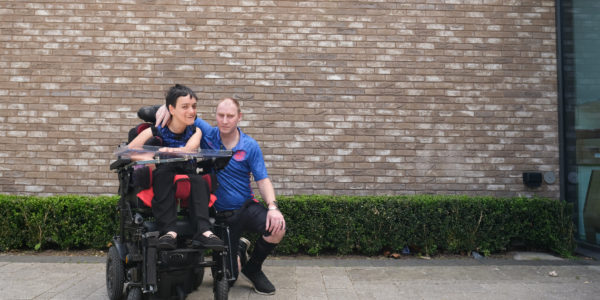Grants for disabled people
This page gives information about grants that you may be able to apply for to help with your costs of living.
Grants are one-off lump sums of money that you don’t have to pay back. Some local authorities and UK charities offer grants to disabled people and their families.
Grants are different to benefits, which you receive from the government on a regular basis. Find out more about benefits for disabled adults.
On this page, find out more about:
- Government disability grants.
- Charities offering disability grants.
- Tools to help you find a disability grant.
- Make sure you’re getting the benefits you’re entitled to.
We also have more information about:
- Cost of living payments.
- Help with energy and food costs for disabled people.
- Help with transport costs for disabled people.
- Funding for sports and leisure activities.
Check how a grant might affect your benefits
Remember: the Department for Work and Pensions (DWP) may view a grant as a kind of income.
Some benefits, like Universal Credit and Employment Support Allowance, are affected by how much income you have.
When applying for a grant, it’s important to check how it might impact any benefits you receive.
If you’re not sure, it’s best to seek advice. You can contact Sense for information and advice, or find a local advice service.
Government disability grants
Disabled Facilities Grant
What is the Disabled Facilities Grant?
The Disabled Facilities Grant is a home improvement grant for disabled people from the government. It’s available in England, Wales and Northern Ireland.
If you’re disabled, you could get a grant from your council to make necessary changes to your home, for example to:
- Widen doors and install ramps.
- Improve access to rooms and facilities, for example, stairlifts or a downstairs bathroom.
- Provide a suitable heating system.
- Adapt heating or lighting controls to make them easier to use.
Who can get a Disabled Facilities Grant?
You can apply for the Disabled Facilities Grant if you are disabled, or if you live with someone who is.
You, or the disabled person you live with, must:
- Own the property or be a tenant.
- Intend to live in the property during the grant period (currently five years).
You could also apply if you’re a landlord to a disabled tenant.
You have to be able to show your council that the work you want to carry out is necessary and reasonable.
Find out about applying for a Disabled Facilities Grant in England and Wales, or how to apply in Northern Ireland.
Support from local authorities in England
Local authorities in England have welfare assistance schemes to support people who need help to buy essential items.
Who is eligible for this support, and how much is available, depends on your local authority.
To find out more, call your local authority and ask for more information about their welfare assistance scheme.
Community Care Grants in Scotland
The Scottish Welfare Fund offers Community Care Grants to people on low incomes who need help living independently.
You can apply via your local council.
Find out more about how to apply for a Community Care Grant.
Discretionary Assistance Fund in Wales
The Discretionary Assistance Fund in Wales offers grants to people who need help living independently (Individual Assistance Payments). It also offers emergency funds for people in a crisis (Emergency Assistance Payments).
Find out more about the Discretionary Assistance Fund.
Discretionary Support in Northern Ireland
Discretionary Support loans and grants are available for people who are in crisis and need financial help in Northern Ireland.
Find out more about Discretionary Support in Northern Ireland.
Charities offering disability grants
Family Fund grants
What is Family Fund?
Family Fund is the UK’s largest charity providing grants for families raising disabled or seriously ill children and young people.
Who can get a Family Fund grant?
Family Fund offers grants to families of disabled or seriously ill young people under 17. You must live in the UK and be able to prove that you receive certain benefits.
You can apply for a grant to buy sensory toys, equipment, days out and items for the home to support your disabled or seriously ill child.
Check out the full eligibility criteria for Family Fund grants.
Find out how to apply for a Family Fund grant depending on where you live in the UK.
Family Action
What is Family Action?
Family Action is a charity that offers welfare grants and educational grants of up to £300 to families in poverty.
Who can get a Family Action grant?
Family Action welfare grants are for people who are on a low income, and at least one of the following:
- 60 or over.
- Diagnosed with a mental health condition (aged 18 or over).
- Have recently experienced domestic abuse.
Applications must be made on your behalf by a professional, such as a GP or social worker.
Find out more about how to apply for a Family Action welfare grant.
Educational grants are available for students of particular affiliated colleges. Find out more about Family Action educational grants.
RNIB grants
What is the RNIB?
RNIB stands for Royal National Institute of Blind People. It is a national charity for people with sight loss.
Who can get an RNIB grant?
RNIB offers grants to registered blind or partially sighted people. These grants can be used to buy a wide range of useful technologies that can help you live independently.
You should also live in the UK and be receiving a means-tested benefit.
Plus, you must have been refused funding from your local authority for the items you need.
Read the full eligibility criteria for RNIB grants.
Visit the RNIB website to find out more about applying for a grant.
The Florence Nightingale Aid in Sickness Trust (FNAIST)
What is the FNAIST?
The Florence Nightingale Aid in Sickness Trust was established in 1975 after the closure of the Florence Nightingale Hospital for Invalid Gentlewomen.
The money from the sale of the hospital was used to create a fund that could help people who are ill and/or disabled.
Today, the FNAIST awards grants to people to help pay for things that can improve their quality of life. This could include medical equipment, household goods or respite care.
Who can get a FNAIST grant?
People of all ages who are ill and/or disabled can apply for a grant. The application should be made on your behalf by a medical, social care or charity professional.
Find out more about the eligibility criteria and how to apply for a FNAIST grant.
Independence at Home
What is Independence at Home?
Independence at Home is a charity that awards grants to people with long-term illnesses and disabilities.
It was founded in 1965. It offers grants between £300 and £600, to go towards equipment, building works or other essential items to support independence.
Who can get an Independence at Home grant?
Independence at Home supports people with long-term illnesses and disabilities.
You must:
- Have a condition from their list of eligible conditions.
- Be in financial need and unable to pay for the item/work yourself.
- Be referred by a health, social care or charity professional.
Find out more about who is eligible for an Independence at Home grant.
Disabled and Elderly Plumbing and Heating Emergency Repair (DEPHER)
What is DEPHER?
Disabled and Elderly Plumbing and Heating Emergency Repair (DEPHER) is a fund for people who need help paying for emergency repairs.
It might be that your boiler has broken down, or maybe you need a plumber to fix a leak in your house.
You might also be able to apply for support with paying for food or gas/electricity bills.
Who can get a DEPHER grant?
DEPHER offers help to people over 65, disabled people and people on low incomes.
Find out how to contact DEPHER for help.
Linking Help with Hope
What is Linking Help with Hope?
Linking Help with Hope is a charity formerly known as The League of the Helping Hand.
It awards grants to people who need financial support because of illness or disability.
Who can get a Linking Help with Hope grant?
Linking Help with Hope offers help to people who are ill and/or disabled. This includes people with both physical and mental health conditions, and people who care for disabled children.
You must be on a very low income, and your application must be sponsored and filled out by a professional such as a social worker.
Find out more about how to apply for assistance.
Glasspool Charity Trust
What is Glasspool?
Glasspool is a UK-wide charity offering financial support to lots of different people in need.
The grants are to help buy essential household items and clothing.
Who can get a Glasspool grant?
Glasspool supports a wide variety of individuals, couples and families.
Your application must be made by a third party organisation (such as a charity) through the GrantsPlus system.
Find out more about Glasspool grant applications.
Tools to help you find a disability grant
Disability Grants
The charity Disability Grants provides a guide to grants for people with disabilities.
- Grants for individual conditions and disabilities.
- Grants for disabled adults.
- Grants for children and young people.
- Grants for disability equipment.
- Grants for housing.
- Grants for specific towns and regions of the UK.
Turn2Us
Turn2Us is a national charity that helps people in financial need get access to benefits, charitable grants and other financial help.
Search for grants and other kinds of help.
The Lightning Reach Portal
The Lightning Reach Portal is a place to find and apply for financial support.
It allows you to search for grants and other schemes you might be eligible for, from multiple providers.
You just have to make a profile, then you can use the portal to find support you’re eligible for.
Visit the Lightning Reach Portal.
Make sure you’re getting the benefits you’re entitled to
Grants can be helpful in an emergency, or if you need to fund a specific purchase.
Benefits offer more regular financial support. Visit our pages about benefits to find out more.
Stay in touch

Get updates about our vital work, including volunteering, making a donation or supporting Sense campaigns.
This content was last reviewed in March 2024. We’ll review it again next year.



